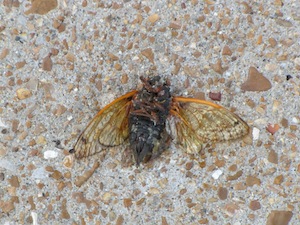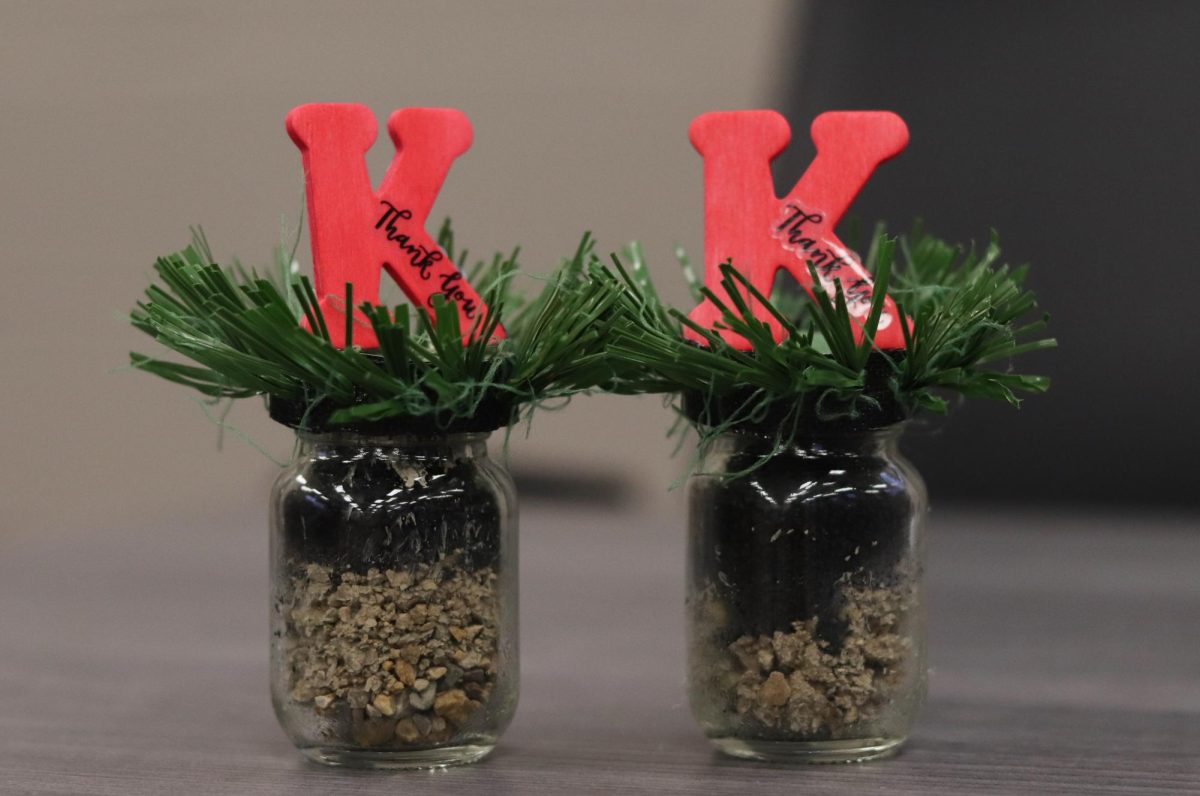Unlike last summer, the loud buzzing sound in the air was not vuvuzelas.
People all over the Midwest were swarmed by millions of cicadas when they stepped outside. Not the annual “dog day” cicada seen every July, but a “brood” or family of offspring of periodical cicadas. They emerged in broods of millions starting in late May and ended in late June or early July.
Different than annual cicadas, periodical cicadas come in a bigger quantity, are noticeably smaller in size and swarm only every 13 or 17 years (this summer being the 13 year brood).
The cicadas do not cause harm in any way as they cannot sting, bite or pinch. They were here to create offspring.
In the Midwest and the South, uncountable numbers of cicadas emerged out of the ground to mate. The male cicadas quickly contract and relax elastic membranes called tymbals located behind their last pair of legs. This membrane motion makes clicks with each muscle twitch. The lightning fast clicks, when done in succession, make the buzzing sound that was heard so much.
“They have an odd almost musical tone to them,” David Bruns, conservationist for the Missouri Department of Conservation (MDC), said. “When hearing it, some even think it’s an alien landing.”
Some Kirkwood residents said the noise made outside activities almost unbearable.
“You couldn’t walk 50 feet without getting hit by three or four flying around,” Patrick Guilfoy, sophomore, said. “It was very very loud with their buzz and hum.”
The female cicada cuts a tiny slit in a tree branch and lays her eggs there. In six to ten weeks, they hatch as tiny white grub-like nymphs and fall to the ground where they burrow underneath the frost line. They will stay underground feeding on sap from tree roots for 13 or 17 years. Conservationists state that the time underground give the cicadas an incredibly large lifespan for an insect.
Underground, they form a thin shell and when it is time, they emerge, shed their outer shell and repeat this long process.
All the cicadas experienced this summer were all children of the last 13 year brood, which was in 1998. This summer’s cicada offspring will emerge from the ground in 2024.
Some Missourians made great use of the cicadas. Cicada skewers, pizza, tacos, dumplings, cookies and even cicada gravy were all found on plates this summer.
“It’s a novelty,” said Bruns. “I mean how often do you get to eat some cicadas?”
Sparky’s Homemade Ice Cream in Columbia, MO made a half batch of cicada ice cream and almost instantly sold out. However, the City of Columbia/Boone County Department of Public Health and Human Services forbade Sparky’s from making a second batch of the ice cream.
While some were enjoying them on their plates, most Missourians were frustrated with the invasion of cicadas this summer.
“It’s just part of nature,” Joe Jerek, spokesman for the MDC, said. “[The cicadas have] been happening for millennium.”
These cicadas are almost impossible to get rid of according to experts. Their huge population makes it hard for predators to kill them off. They are attracted to trees and no insecticide affects them.
Conservationists of Missouri say that humans should enjoy the cicada breakout as it only happens a handful of times in every persons life.
“It’s important for people to be aware that all living things in our ecosystem have value and importance,” said Bruns, “whether we understand it or not.”









